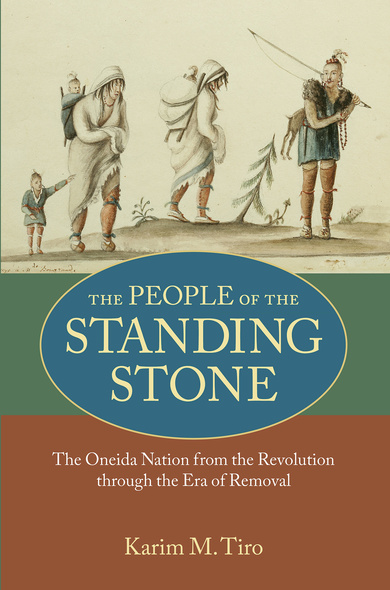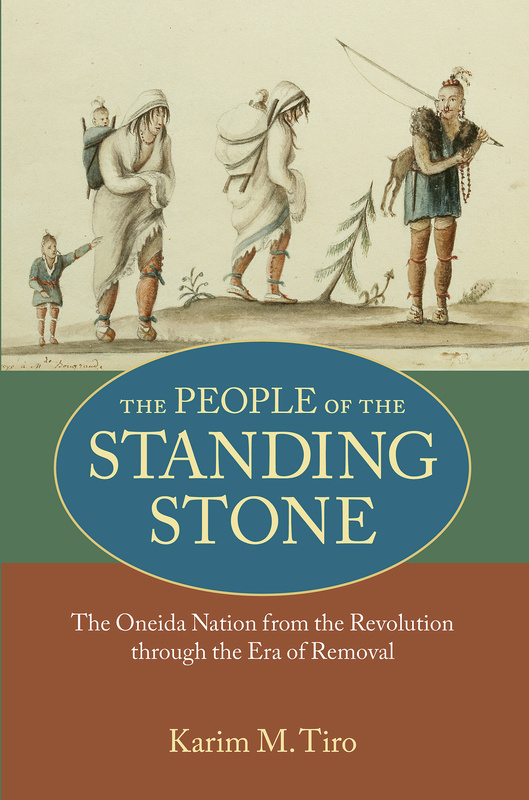The People of the Standing Stone
The Oneida Nation from the Revolution through the Era of Removal
University of Massachusetts Press
Between 1765 and 1845, the Oneida Indian Nation weathered a trio of traumas: war, dispossession, and division. During the American War of Independence, the Oneidas became the revolutionaries' most important Indian allies. They undertook a difficult balancing act, helping the patriots while trying to avoid harming their Iroquois brethren. Despite the Oneidas' wartime service, they were dispossessed of nearly all their lands through treaties with the state of New York. In eighty years the Oneidas had gone from being an autonomous, powerful people in their ancestral homeland to being residents of disparate, politically exclusive reservation communities separated by up to nine hundred miles and completely surrounded by non-Indians.
The Oneidas' physical, political, and emotional division persists to this day. Even for those who stayed put, their world changed more in cultural, ecological, and demographic terms than at any time before or since. Oneidas of the post-Revolutionary decades were reluctant pioneers, undertaking more of the adaptations to colonized life than any other generation. Amid such wrenching change, maintaining continuity was itself a creative challenge. The story of that extraordinary endurance lies at the heart of this book.
The Oneidas' physical, political, and emotional division persists to this day. Even for those who stayed put, their world changed more in cultural, ecological, and demographic terms than at any time before or since. Oneidas of the post-Revolutionary decades were reluctant pioneers, undertaking more of the adaptations to colonized life than any other generation. Amid such wrenching change, maintaining continuity was itself a creative challenge. The story of that extraordinary endurance lies at the heart of this book.
The People of the Standing Stone features sound scholarship and a well-crafted narrative. A useful contribution to Iroquoian studies, it also offers an excellent case study in the experience of northeastern Indians from the era of the American Revolution to Indian Removal.'—Timothy J. Shannon, author of Iroquois Diplomacy on the Early American Frontier
'The author presents the Oneida as a people who have weathered the changes that came with expanding European colonization. . . . Rather than conclude the story with removal, Tiro traces out incredible stories of how the Oneida survived during this period of diaspora, illustrating the Oneida refusal to simply disappear. Highly recommended.'—Choice
'Tiro's analyses of specific areas of interest, such as the reasons why the Oneida departed in different directions in the 1830 and 1840s, provide thought-provoking insight. . . . Tiro succeeds in providing a very readable account of a tumultuous century for the Oneidas.'—Journal of American History
'Traces the Oneidas' struggles with the American Revolution and its aftermath. . . . Tiro sees the Oneidas as important actors in this dark chapter in their history without denying that American colonialism put serious restrictions on their options. Tiro is to be applauded for this balance and nuance'—Journal of the Early Republic
'Karim M. Tiro presents a laser-focused history of the colonial-to-federal shattering of the Oneidas. I wholeheartedly recommend this first-rate work on Oneida-U.S. history.'—American Historical Review
'This book is a substantial achievement that will find an important place on the shelves of all scholars of eastern North American first peoples. . . . Many scholars will regard this study as the work of first resort in understanding post-Revolutionaary Oneida history.'—Ontario History
Karim M. Tiro is associate professor of history at Xavier University in Cincinnati. He is coeditor of Along the Hudson and Mohawk: The 1790 Journey of Count Paolo Andreani.





